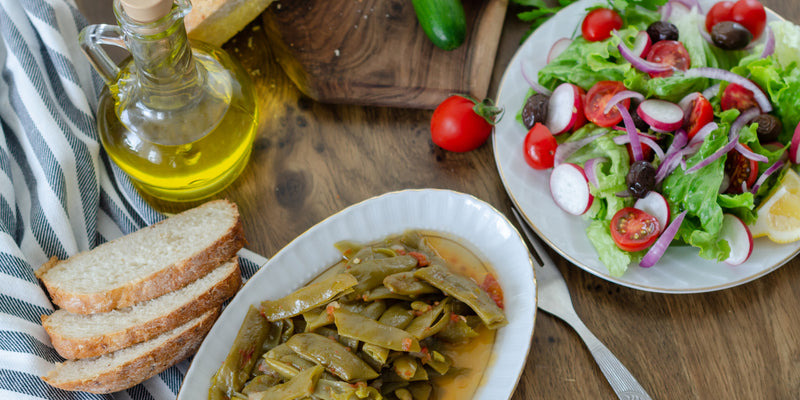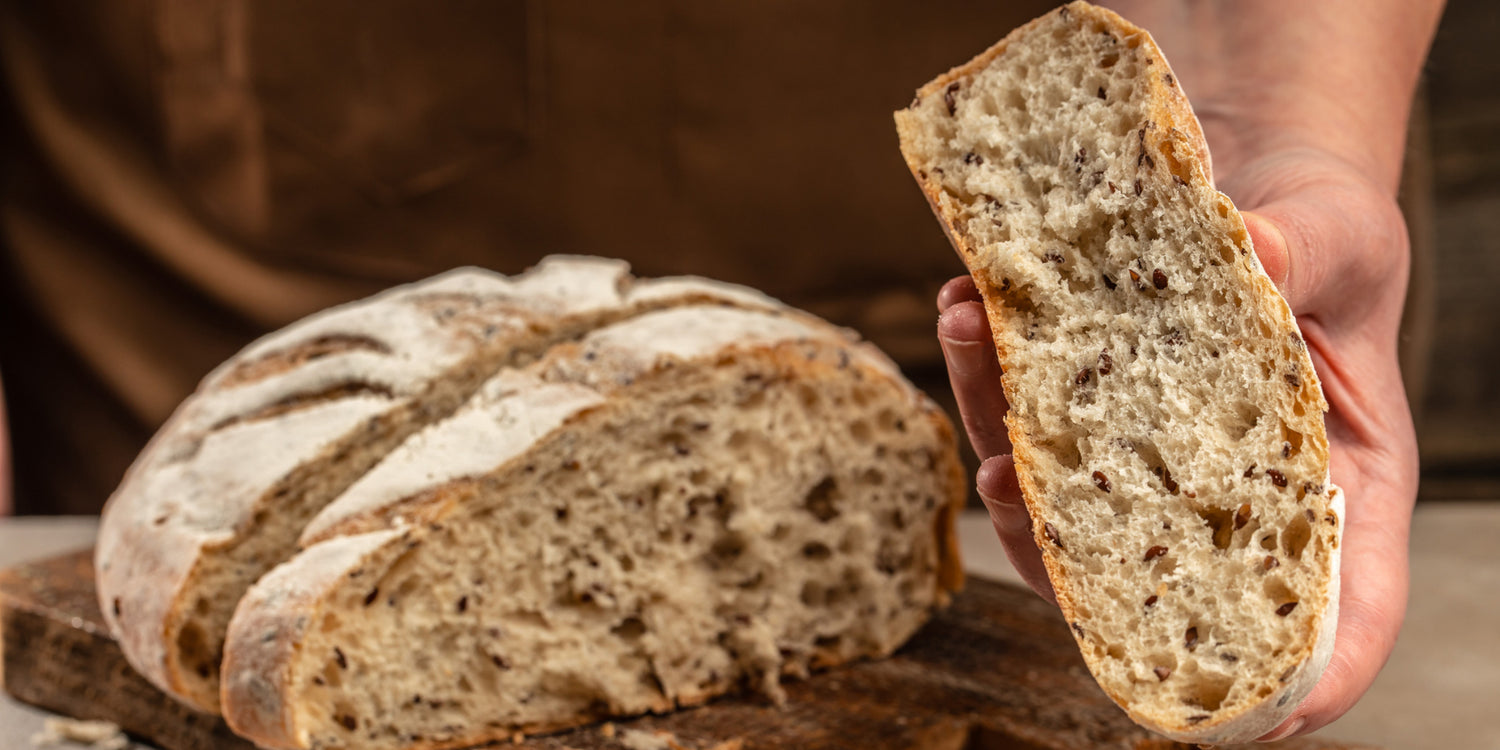Losing weight doesn't have to mean giving up on delicious food. In fact, with the right low carb alternatives, you can shed those unwanted pounds while still enjoying a wide variety of flavors and satisfying meals.
With that said, let’s explore a range of mouthwatering low carb alternatives that will not only keep you on track with your weight loss journey but also leave your taste buds dancing with delight. We understand that sticking to a diet can be challenging, especially when it feels like you're missing out on all the foods you love.
So, if you're ready to discover a world of low carb alternatives that will have you shedding pounds deliciously, let's dive in and embark on this exciting culinary adventure together. Remember, you don't have to sacrifice taste for weight loss. It's time to redefine your relationship with food and embrace a healthier, more flavorful way of eating.
What is a Low-Carb Diet?

A low-carb diet, also known as a low-carbohydrate diet, is a nutritional approach that restricts the consumption of carbohydrates while emphasizing the intake of proteins and healthy fats. This dietary regimen is based on the idea of reducing the intake of refined grains, sugars, and starchy foods, such as bread, pasta, and potatoes, to promote weight loss, optimize blood sugar levels, and improve health. By limiting the intake of carbs, the body is encouraged to burn stored fat for fuel, resulting in increased fat burning and potential weight loss. Additionally, low-carb diets have been linked to various health benefits, including decreased hunger and cravings, improved cholesterol levels, and enhanced blood pressure control. Despite its effectiveness in weight management and improving overall health markers, low-carb diets may not be suitable for everyone, and individual needs should be considered before embarking on this dietary approach.
What are the Benefits of a Low-Carb Diet?
A low-carb diet can offer several benefits for individuals looking to achieve weight loss and improve their overall health. By reducing carbohydrate intake, the body is forced to shift its primary fuel source from carbohydrates to stored fat, leading to a more efficient fat-burning process.
One of the main advantages of a low-carb diet is its ability to aid in weight loss. Compared to low-fat diets, low-carb diets have been shown to be more effective in shedding pounds. This is because reducing carbohydrate intake leads to a decrease in insulin levels, promoting fat breakdown and reducing appetite.
Additionally, a low-carb diet can have positive effects on overall health. Studies have shown that it can help improve markers of cardiovascular health, such as blood pressure and triglyceride levels. By reducing carbohydrate intake and increasing consumption of healthy fats and proteins, individuals on a low-carb diet may also experience a decrease in inflammation and an improvement in insulin sensitivity.
Incorporating relevant facts from the Background Information, it is important to note that a low-carb diet should not be completely devoid of carbohydrates. Instead, it focuses on limiting the intake of refined and processed carbohydrates while emphasizing whole, nutrient-dense foods. This approach ensures that individuals still receive essential vitamins, minerals, and fiber necessary for optimal health.
How Important is Healthy Fats in a Low-Carb Diet?

Healthy fats are an essential component of a low-carb diet and play a crucial role in weight loss and overall health. While low-carb diets typically focus on reducing carbohydrate intake, it is important to understand the significance of incorporating healthy fats into such a diet.
Healthy fats, such as monounsaturated fats and omega-3 fatty acids, provide numerous health benefits. Unlike unhealthy trans fats, which can increase the risk of heart disease, healthy fats have been shown to promote heart health by improving cholesterol levels and reducing inflammation in the body. Moreover, they aid in the absorption of fat-soluble vitamins, including vitamins A, D, E, and K, which are essential for overall health.
In a low-carb diet, healthy fats play a pivotal role in enhancing weight loss. When carbohydrates are limited, the body enters a state of ketosis, where it starts utilizing stored fat for energy. Including healthy fats in the diet provides a sufficient source of energy, curbing hunger and cravings. Additionally, they help in stabilizing blood sugar levels and promoting a feeling of satiety, thereby reducing overeating.
To incorporate healthy fats into a low-carb diet, it is essential to choose quality sources such as avocados, nuts and seeds, olive oil, fatty fish, and coconut oil. These can be added to meals in the form of salad dressings, sautéing vegetables, or using them as a topping. For individuals aiming for weight loss and overall health, emphasizing healthy fats is a key aspect of a successful low-carb diet.
5 Low Carb Alternative Foods You Need to Know

If you're following a low-carb diet, it is important to be aware of low carb alternative foods that can provide variety and aid in weight loss. These healthy options can help you maintain your diet without compromising taste. Here are five low carb alternative foods that you need to know:
- Cauliflower Rice: Cauliflower is a versatile vegetable that can be processed into rice-like grains, making it a great substitute for traditional rice. It is low in carbs and calories but high in fiber and nutrients. This makes it an ideal choice for those watching their carb intake.
- Zoodles: Zucchini noodles, commonly known as zoodles, are an excellent low carb alternative to traditional pasta. Made by spiralizing zucchini, zoodles contain significantly fewer carbs and calories compared to wheat-based pasta. They are a great source of vitamins and minerals, making them a healthy addition to any low-carb meal.
- Lettuce Wraps: Instead of using bread or tortillas, consider using large lettuce leaves as a low carb alternative to wraps or sandwiches. Lettuce wraps not only reduce carb consumption, but they also provide additional vitamins, minerals, and antioxidants found in leafy greens.
- Coconut Flour: Regular flour is high in carbs, but coconut flour is a low-carb alternative that can be used for baking. Made from dried and ground coconut meat, it is high in fiber and healthy fats. Coconut flour is an excellent choice for those following a low-carb diet.
- Greek Yogurt: For a low-carb alternative to regular yogurt, opt for Greek yogurt. It contains double the protein compared to traditional yogurt with a lower carbohydrate content. Greek yogurt is not only satisfying but also provides important nutrients such as calcium and probiotics.
By incorporating these low carb alternative foods into your diet, you can enjoy a wide range of delicious meals while sticking to your low-carb lifestyle.
Why Choose Low-Carb Alternatives?
Choosing low-carb alternatives can have various benefits for better health and weight management. By reducing carbohydrate intake, individuals can experience weight loss, increased energy levels, and improved overall health.
One significant impact of different types of carbohydrates is their effect on blood sugar levels. Certain carbohydrates, such as refined sugars and processed grains, cause a rapid spike in blood sugar levels, leading to a subsequent crash. This rollercoaster effect can lead to increased hunger and cravings, often resulting in overeating and weight gain. On the other hand, low-carb alternatives, particularly fibrous carbs, have a minimal impact on blood sugar levels. These types of carbohydrates are slowly digested and absorbed by the body, providing a steady release of energy over time. This means that individuals are less likely to experience the 'sugar crash' and are more satisfied, reducing the risk of overeating.
Additionally, low-carb alternatives, such as fibrous carbs, promote better health by providing essential nutrients and aiding in digestion. Fibrous carbs, such as vegetables, legumes, and whole grains, are rich in vitamins, minerals, and dietary fiber. These nutrients support digestion, maintain a healthy gut, and help prevent various chronic diseases, such as diabetes and heart disease.
Takeaway
Adopting a low-carb diet doesn't mean sacrificing taste or flavor. By incorporating low-carb alternatives into your meals, you can achieve weight loss while still enjoying a wide variety of delicious foods. These alternatives include cauliflower rice, zoodles, lettuce wraps, coconut flour, and Greek yogurt, which provide nutrient-dense options without the high carbohydrate content.
Choosing low-carb alternatives offers several benefits, including weight loss, increased energy levels, and improved overall health. By reducing refined and processed carbohydrates, you can stabilize blood sugar levels, reduce cravings, and promote better digestion. Additionally, incorporating healthy fats into a low-carb diet supports satiety, aids in the absorption of essential nutrients, and contributes to heart health. With these low-carb alternatives, you can redefine your relationship with food, embark on an exciting culinary adventure, and achieve your weight loss goals deliciously.
Renpho Health Tips
-

Pedal Your Way to Fitness: Exploring the Incredible Benefits of Exercise Bikes
May 8, 2024
Read more >
-

Serving Size 101: Everything You Need to Know
May 6, 2024
Read more >
-

Game On! How Gamification Motivates and Engages in Exercise
April 29, 2024
Read more >
-

Lowering Blood Pressure: 5 Simple Steps for Effective Treatment
April 29, 2024
Read more >
-

7 Practical Tips for Sustaining Healthy Eating Habits
April 25, 2024
Read more >
